Here are 100 commonly used verbs that start with the letter “F”:
Face
Fade
Fail
Fall
Feed
Feel
Fight
Find
Finish
Fit
Fix
Fly
Follow
Forget
Forgive
Form
Freeze
Fry
Formulate
Focus
Fortify
Flourish
Furnish
Fund
Flaunt
Flirt
Fumble
Fulfill
Flee
Frolic
Flip
Flinch
Frown
Fortunate
Facilitate
Fabricate
Fulcrum
Fracture
Foster
Fluctuate
Foil
Frighten
Filter
Feature
Frustrate
Flare
Flourish
Fetch
Fortify
Favor
Flap
Fight
Fidget
Flatter
Fasten
Fathom
Familiarize
Falcon
Feign
Fidget
Formulate
Frame
Function
Free
Frizzle
Flapjack
Favor
Fleece
Festoon
Famine
Foreshadow
Fray
Fatigue
Fuse
Foster
Fisher
Fortunate
Front
Figment
Fuel
Fume
Filter
Fashion
Form
Frock
Freshen
Finish
Flounder
Fathom
Fructify
Fulminate
Foster
Flicker
Flow
Freestyle
First
Fray
Fold
Frisk
Fan
You might also enjoy:Which of the Following: Definition + Complete Usage + Grammar

Important Points:
Diversity of Meaning: The verbs that start with the letter “F” encompass a wide range of meanings and applications, from physical actions like “fly” and “fall” to more abstract concepts such as “forgive” and “formulate.”
This diversity showcases the richness of the English language and its ability to convey various actions and states.
Practical Use: Familiarity with these verbs can significantly enhance one’s vocabulary and ability to communicate effectively.
Understanding how and when to use different verbs allows for clearer expression in both writing and conversation, which is crucial in academic, professional, and casual settings.
Language Learning Tool: For language learners, compiling a list of commonly used verbs by their starting letters can be an effective strategy.
It aids in retention and encourages usage in practical contexts, allowing learners to build confidence in their language skills.
Flexibility in Communication: Many verbs can have multiple meanings or uses depending on the context. For instance, “fit” can refer to physical dimensions, personal compatibility, or emotional states.
This versatility enriches communication and allows for more expressive language use.
Cultural Context: Understanding the nuances of certain verbs can also provide insights into cultural contexts and idiomatic expressions.
For instance, phrases like “fess up” (to confess) may exercise a layer of cultural understanding that enhances your linguistic competence and relatability.
Now, let’s dive deeper into the world of verbs that begin with “F,” exploring each verb’s meanings, examples of usage, and how they can be effectively integrated into your vocabulary and communication style.
In the vast and intricate tapestry of the English language, verbs play a pivotal role in conveying action, emotion, and intent. They serve as the heartbeat of our speech and writing, allowing us to express our thoughts and experiences with precision and clarity.
Among the plethora of verbs in English, those that begin with the letter “F” boast a fascinating array of meanings, uses, and applications, making them both interesting and essential for effective communication.
From the moment we wake up to the time we go to sleep, our daily activities are punctuated by actions that can be articulated through vivid verbs.
The collection of “F” verbs we will explore ranges from dynamic actions like “fly” and “fight” to softer expressions such as “forgive” and “furnish.”
This spectrum illuminates the ability of language to describe not only the physical world but also the emotional and conceptual landscapes we navigate every day.
As we examine these 100 commonly used verbs, we will look beyond mere definitions to consider their applications in context.
Understanding how to use each verb in sentences—whether in casual conversation, business correspondence, or academic writing—will enhance your communication skills and enrich your linguistic repertoire.
For example, while “feed” might refer to giving food to others, it can also be used metaphorically, as in “feeding one’s curiosity” or “feeding off someone’s energy.”
Moreover, the ability to recognize and apply these verbs can improve your writing style. Choosing dynamic verbs can transform dull prose into vibrant narratives, enabling you to connect more effectively with your readers or listeners.
Whether you are crafting a story, delivering a presentation, or simply engaging in everyday dialogue, the strategic use of “F” verbs can enhance your expressiveness and make your communication more impactful.
Alongside their practical applications, these verbs also offer language learners an excellent opportunity for vocabulary expansion and understanding of structure.
By familiarizing yourself with a specific set of words, such as this collection of “F” verbs, you can incrementally build your language skills, improving both your comprehension and speaking abilities in English.
You Might Also Enjoy:Reinforce Vs Reenforce: 10 Differences + Examples [2025]
In this exploration of commonly used verbs that start with “F,” we will define, exemplify, and contextualize each verb, empowering you to use them confidently and appropriately.
Join us on this linguistic journey as we unlock the true potential of “F” verbs, equipping you with the tools to express yourself more powerfully and persuasively in various aspects of life and communication.
Let’s begin this exciting endeavor together, enriching our understanding of the actions that shape our experiences!
1. Flee: To run away or escape from a dangerous or unpleasant situation. Example: The frightened rabbit fled from the approaching predator.
2. Forge: To create or produce something, often through skill or effort. Example: The blacksmith forged a beautiful sword from molten metal.
3. Fixate: To focus one’s attention or thoughts on something obsessively. Example: The student fixated on the difficult math problem, determined to solve it.
4. Fluctuate: To vary or change in an irregular or unpredictable manner. Example: The stock market prices fluctuated throughout the day, causing uncertainty among investors.
5. Fascinate: To captivate or attract someone’s interest or curiosity. Example: The documentary on marine life fascinated the audience with its stunning visuals and informative narration.
6. Foster: To encourage or promote the development or growth of something. Example: The organization works tirelessly to foster a sense of community and belonging among its members.
7. Facilitate: To make a process or task easier or more efficient. Example: The new software was designed to facilitate communication and collaboration within the team.
8. Fracture: To break or crack something, usually referring to bones or objects. Example: The athlete suffered a fracture in his leg after a bad fall during the game.
9. Flounder: To struggle or make clumsy movements, often in water or while trying to find one’s footing. Example: The beginner swimmer floundered in the deep end of the pool, gasping for air.
10. Fabricate: To invent or create something, often with the intention to deceive or mislead. Example: The witness admitted to fabricating the story to protect the real culprit.
11. Forecast: To predict or estimate future events or outcomes. Example: The meteorologist forecasted heavy rain and thunderstorms for the weekend.
12. Filter: To pass through a medium or device to remove impurities or separate substances. Example: The coffee is brewed using a filter that ensures a smooth and pure taste.
13. Flirt: To behave playfully or show romantic interest in someone. Example: The young couple flirted with each other, exchanging smiles and compliments.
14. Frustrate: To cause feelings of disappointment or annoyance due to obstacles or unfulfilled expectations. Example: The constant delays frustrated the passengers waiting for their flight.
15. Function: To work or operate in a particular way. Example: The heart functions as a pump, circulating blood throughout the body.
These are just a few examples of verbs that start with the letter “F.” Each verb adds depth and variety to our language, allowing us to express a wide range of actions and emotions.
By understanding and incorporating these verbs into our writing and speech, we can communicate more effectively and vividly.
You might also enjoy:Where Does “How is your Day Going?” Originate From?
Here are 100 commonly verbs starting with letter F
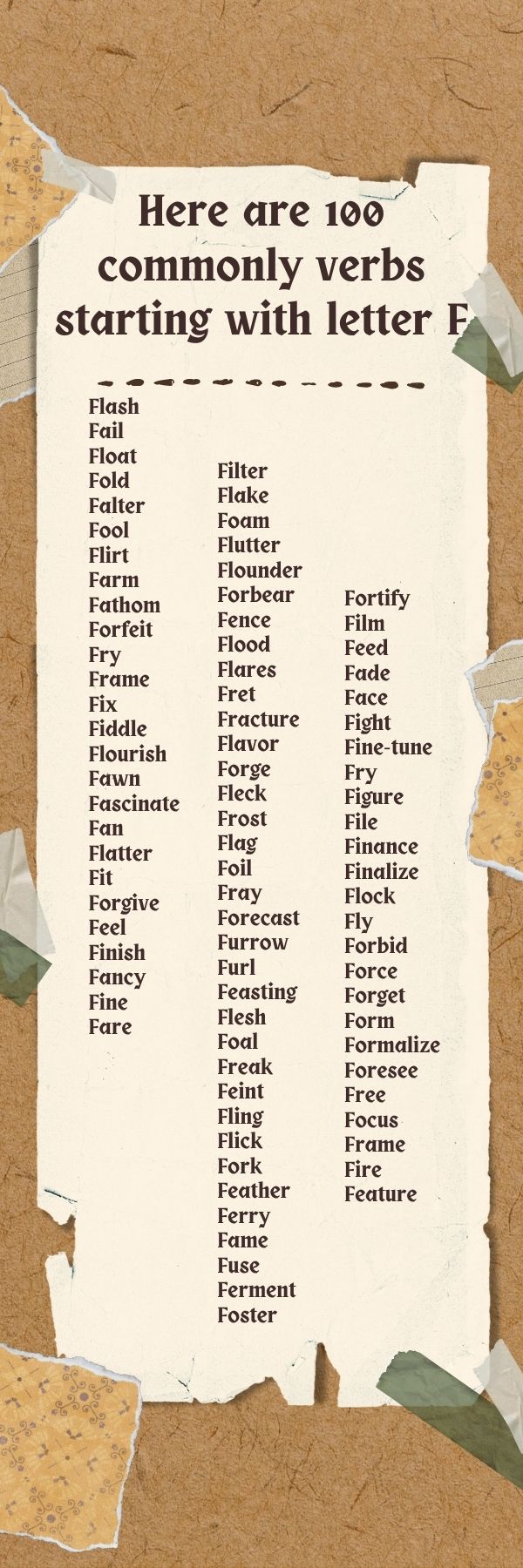
- Flash
- Fail
- Float
- Fold
- Falter
- Fool
- Flirt
- Farm
- Fathom
- Forfeit
- Fry
- Frame
- Fix
- Fiddle
- Flourish
- Fawn
- Fascinate
- Fan
- Flatter
- Fit
- Forgive
- Feel
- Finish
- Fancy
- Fine
- Fare
- Filter
- Flake
- Foam
- Flutter
- Flounder
- Forbear
- Fence
- Flood
- Flares
- Fret
- Fracture
- Flavor
- Forge
- Fleck
- Frost
- Flag
- Foil
- Fray
- Forecast
- Furrow
- Furl
- Feasting
- Flesh
- Foal
- Freak
- Feint
- Fling
- Flick
- Fork
- Feather
- Ferry
- Fame
- Fuse
- Ferment
- Foster
- Fortify
- Film
- Feed
- Fade
- Face
- Fight
- Fine-tune
- Fry
- Figure
- File
- Finance
- Finalize
- Flock
- Fly
- Forbid
- Force
- Forget
- Form
- Formalize
- Foresee
- Free
- Focus
- Frame
- Fire
- Feature
Adverbs that Start with f for Kids:
For kids, exploring adverbs starting with ‘F’ can be fun and educational. “Fast” describes speedy actions, “freely” conveys a sense of freedom, and “fiercely” captures intense emotions.
Encouraging children to use adverbs like “fluently” and “frequently” enhances their language skills.
Learning about adverbs that start with ‘F’ adds flair and finesse to their communication toolkit.
What are some vivid words that start with f?
Fascinatingly, the English language is rich with vivid words starting with ‘F.’ Picture the beauty of a “flourishing” garden, the intensity of a “frenzied” dance, or the mystery in a “fog-shrouded” landscape.
Embrace words like “fervent,” “flamboyant,” and “fascinating” to infuse your language with vividness and flair.
You might also enjoy:Interested In or On: The Differences + Examples [2025]
Verbs that start with f to describe a person
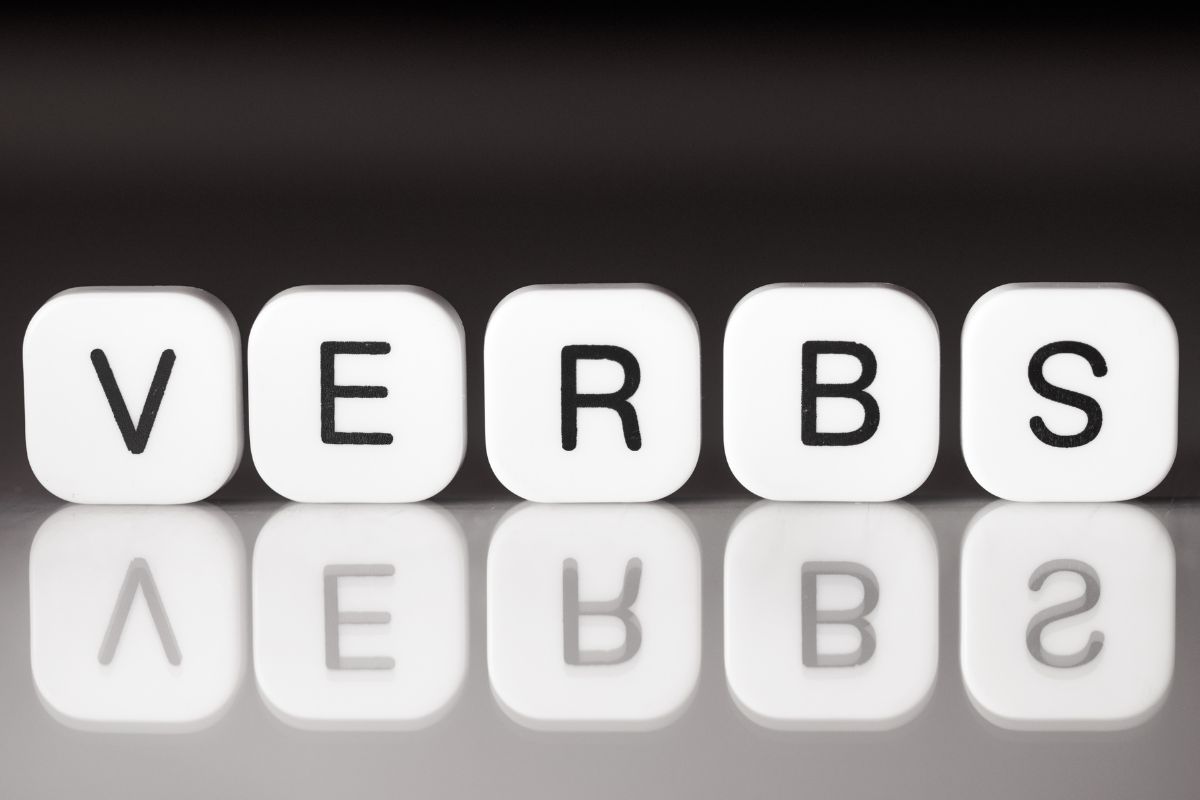
Fascinatingly, using verbs that start with ‘F’ to describe a person can add flair to characterization.
Imagine someone “fostering” positive connections, “forging” new opportunities, or “fashioning” innovative solutions. Additionally, terms like “flourishing” and “fulfilling” capture personal growth and achievement. Selecting these verbs enriches the portrayal of an individual’s dynamic qualities.
You might also enjoy:What Kind of Vs What Kinds of – Differences + Examples [2025]
Common Verbs that Start with F
Common verbs that start with ‘F’ include:
| 1. Feel |
| 2. Find |
| 3. Follow |
| 4. Finish |
| 5. Forget |
| 6. Fly |
| 7. Fall |
| 8. Fulfill |
| 9. Fix |
| 10. Fulfill |
| 11. Form |
| 12. Foster |
| 13. Focus |
| 14. Frown |
| 15. Freeze |
These verbs are frequently used in everyday language to convey a variety of actions and states.
What is a positive noun that starts with f ?
A positive noun that starts with ‘F’ is “Friendship.” It signifies the positive and supportive bond between individuals, emphasizing companionship and mutual care.
Some verbs that Start with F and their Meaning
Here are some verbs that start with ‘F’ along with their meanings:
- Foster:To promote the growth or development of something.
- Facilitate:To make a process easier or smoother.
- Fulfill:To satisfy or meet a requirement or expectation.
- Flourish:To thrive, grow, or develop in a healthy and vigorous way.
- Foster: To encourage and promote the development of something.
- Forge:To create or develop something with effort and skill.
- Fathom:To understand or comprehend something deeply.
- Flee:To run away from a place or situation quickly.
- Fluctuate: To change continually in terms of value, level, or condition.
- Fathom: To measure the depth of something, both literally and metaphorically.
These verbs cover a range of actions and convey different nuances in meaning.
Adverbs that start with F
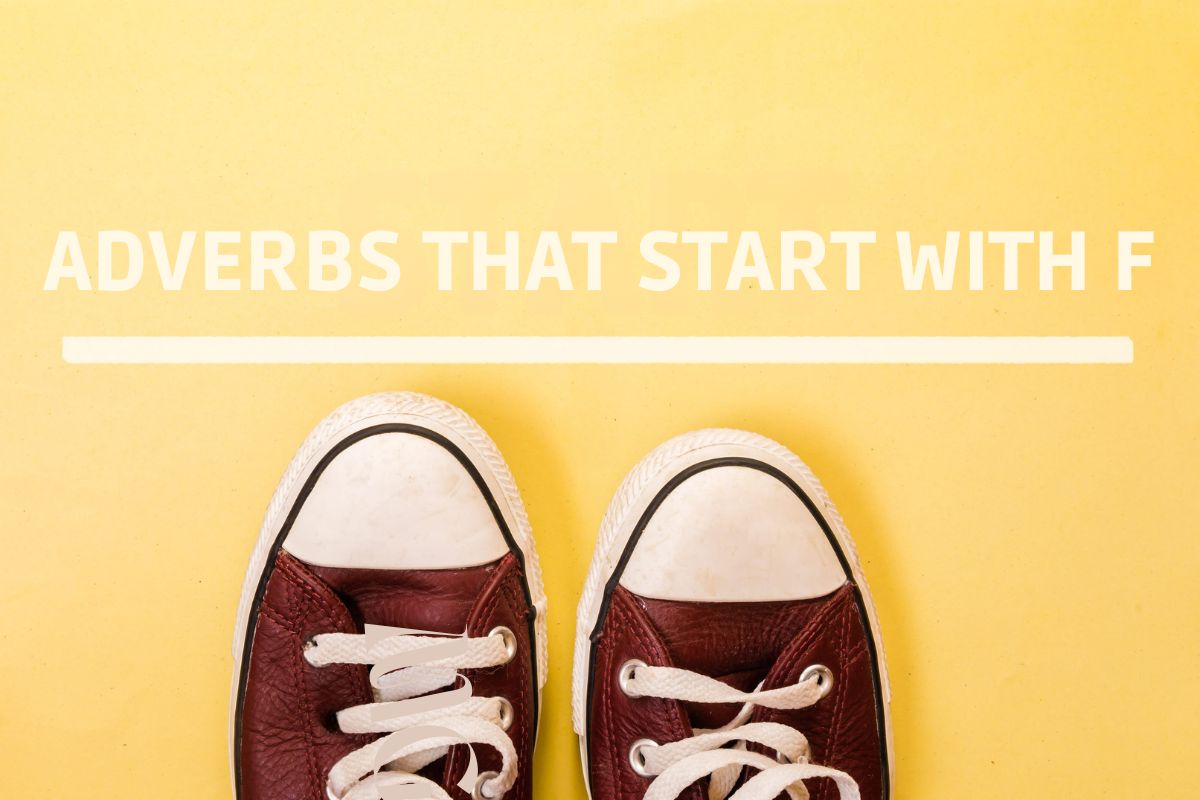
Here are some adverbs that start with ‘F’ along with their meanings:
| 1. Freely:In a manner without hindrance or restriction. |
| 2. Frequently:Happening often or at regular intervals. |
| 3. Fast:At a high speed; quickly. |
| 4. Fully:To the greatest extent or degree. |
| 5. Fiercely:In a strong, powerful, or intense manner. |
| 6. Far:At, to, or by a great distance. |
| 7. Firmly:In a strong, steady, or resolute manner. |
| 8. Forth:Forward in time, place, or order. |
| 9. Forever:For an unlimited duration; eternally. |
| 10. Fortunately: Happening by good luck or fortune. |
These adverbs add depth and precision to the description of actions or events.
What attitude starts with letter f ?
An attitude that starts with the letter ‘F’ is “Flexibility.” Flexibility reflects a willingness to adapt, change, and adjust to new circumstances or perspectives. It involves being open-minded, versatile, and able to navigate various situations with ease.
Exploring the Enigmatic: A Compilation of Vibrant Verbs Beginning with F
Embarking on an exploration of language’s allure, let’s delve into the enigmatic realm of vibrant verbs commencing with ‘F.’
From fervently fashioning phrases to fearlessly forging narratives, these verbs infuse vitality into expression. Unravel the finesse of “flourish,” depicting growth, or “fluctuate,” embodying dynamic change.
This compilation illuminates the vivid spectrum of actions painted by verbs that gracefully dance within the captivating confines of the letter ‘F.’
How do you identify f verb in a sentence?
Identifying a verb that starts with ‘F’ in a sentence involves recognizing words that describe an action, occurrence, or state of being and begin with the letter ‘F.’
For example, in the sentence “She decided to **forgive** him,” the verb is “forgive.” Look for words that convey an action or describe something happening to pinpoint verbs in a sentence.
You might also enjoy:Too Cute Meaning Vs To Cute (To Vs Too) + Examples
Is f verb a doing word?
Yes, indeed. A verb that starts with ‘F,’ like any verb, is a doing word. Verbs are words that express actions, occurrences, or states of being.
When you use an ‘F’ verb in a sentence, you are describing an action or something happening. For example, in the sentence “The cat **jumped**,” the verb “jumped” signifies the action the cat is performing.
How do you identify f verb?
Identifying a verb that starts with ‘F’ involves recognizing words that convey an action, occurrence, or state of being and begin with the letter ‘F.’
For instance, in the sentence “She **finished** her homework,” the verb is “finished,” as it describes the action of completing.
Look for words that denote doing, being, or happening to pinpoint verbs, and note those that start with ‘F’ to identify the specific category you’re looking for.
What is example of f verb noun?
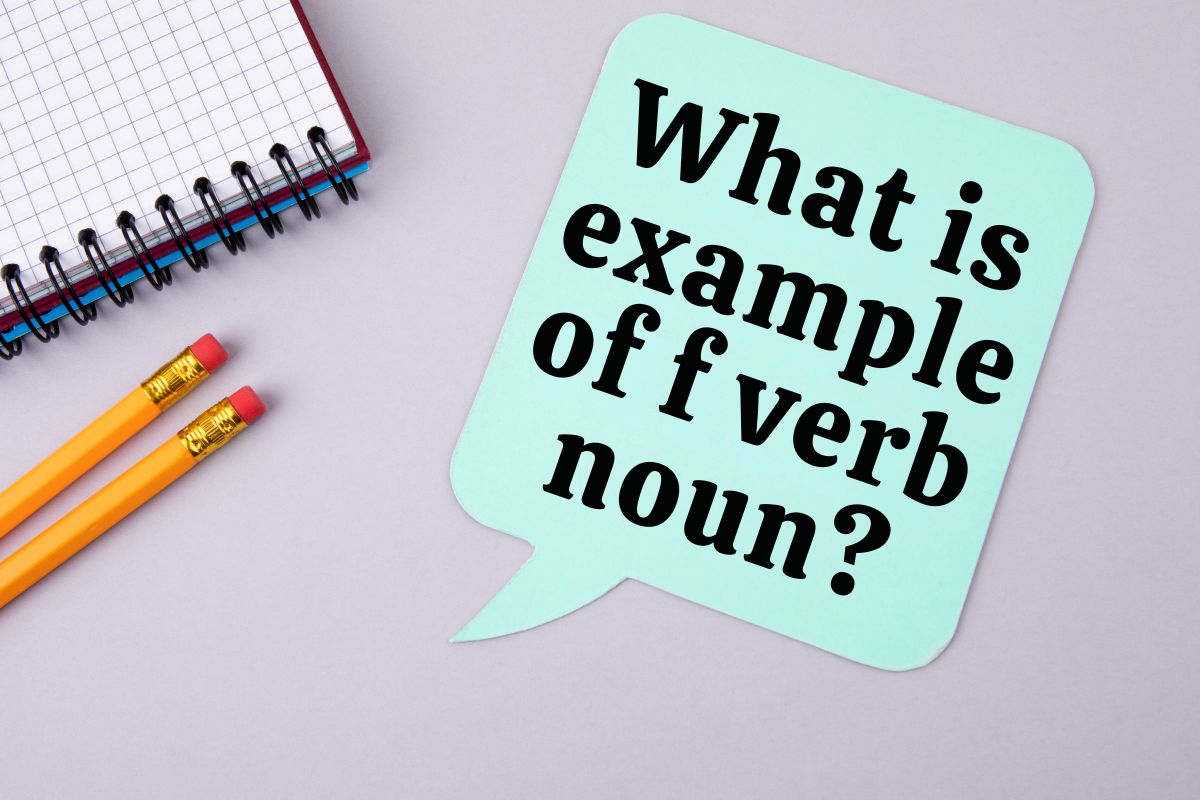
An example of a verb-noun pair starting with ‘F’ could be:
Verb: Forge
Noun: Friendship
Example in a sentence: “Over the years, they worked together to **forge** a strong and lasting **friendship**.”
In this example, “forge” is the verb describing the action of creating or developing, and “friendship” is the noun representing the outcome or result of that action.
What type of word is an f sound?
“F” can be various types of words depending on its function in a sentence. It can be a consonant, a letter of the alphabet.
Additionally, it can function as an adjective, such as in phrases like “F grade” where “F” describes a certain level of performance.
It can also be part of various parts of speech, like nouns (e.g., “friend”), verbs (e.g., “fly”), or adverbs (e.g., “fast”). The role of “F” in a sentence determines its grammatical classification.
What is a helping verb that starts with F?
A helping verb that starts with ‘F’ is “Forms.” It is a form of the verb “to be” and is used in sentences to indicate the future tense.
For example, in the sentence “She will sing at the concert,” the helping verb “will” is used to convey the future action of singing.
You might also enjoy:How Are You Fairing or Faring? Differences + Examples
What is the action word for the letter f?
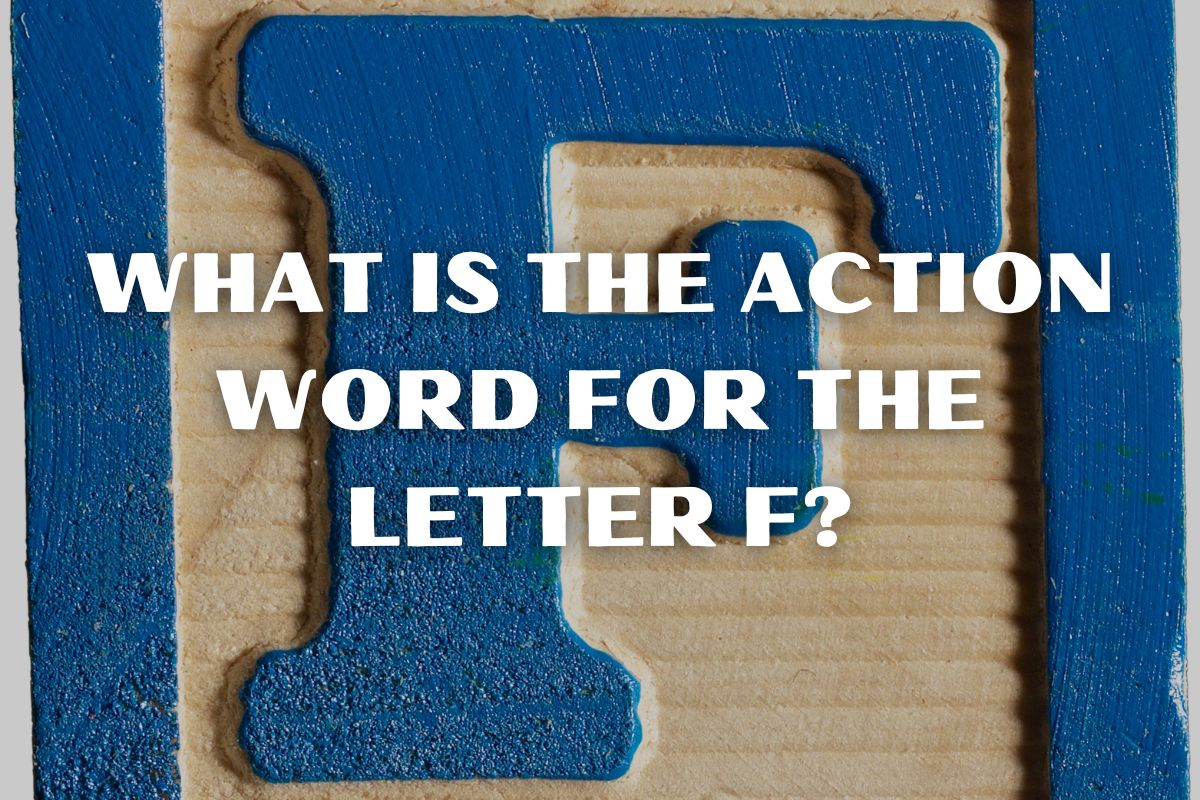
Here are several action words (verbs) that start with the letter “F,” along with their meanings and detailed explanations:
1.Fade
Meaning: To gradually lose brightness, color, or strength; to diminish over time.
The verb “fade” captures the essence of gradual change and transformation, often associated with visual or auditory elements. When something fades, it transitions from a state of prominence to one of obscurity or weakness.
For instance, consider a vibrant sunset that, as time passes, dimly transitions into twilight. This fading process can evoke feelings of nostalgia and impermanence, as it symbolizes the end of a day and the inevitability of change. In a broader context, fading can apply to memories or trends;
certain styles may fade from popularity, reflecting shifts in societal preferences. The concept of fading is also applicable in emotional contexts, where feelings such as grief or loss may gradually lessen in intensity.
Thus, “fade” illustrates not only a literal diminishing of visibility or strength but also invites reflections on the passages of time and the transient nature of experiences.
2.Flourish
Meaning: To grow or develop in a healthy or vigorous way; to thrive.
“Flourish” indicates a state of thriving and prosperity, whether it pertains to living organisms, artistic endeavors, or overall well-being. When plants flourish, they blossom, grow robustly, and reach their full potential, often accompanied by an abundance of flowers or fruits.
This action word suggests an environment conducive to growth, encompassing ideal conditions such as proper sunlight, water, and nutrients. Beyond the natural world, “flourish” extends to personal or professional development. One might say that a student flourishes in a nurturing educational environment, where their talents and interests are encouraged.
In creative contexts, an artist may flourish when given the freedom to explore their imagination and skills without restrictions. Therefore, flourishing denotes not just survival but the achievement of excellence and vitality in various facets of life, emphasizing the importance of supportive conditions in achieving one’s full potential.
3.Flee
Meaning: To run away from a place or situation of danger.
The action word “flee” conveys urgency and the instinctual drive to escape perilous situations. When someone flees, it typically indicates a response to immediate threats, such as natural disasters, personal danger, or conflict.
This act of running away is often characterized by heightened emotions such as fear, anxiety, and the instinct for self-preservation. For instance, a hiker might flee from a sudden bear encounter, driven by the primal need to protect oneself.
“Flee” also has broader implications, such as in the context of refugees who flee their homes due to war or persecution, seeking safety and a chance for survival in new lands.
This action not only highlights the desperation that accompanies danger but also reflects profound challenges and the human spirit’s resilience. In literature and storytelling, fleeing can symbolize a turning point or a pivotal moment in a character’s journey, representing the struggle between safety and the unknown.
4.Forge
Meaning: To create or form something through a process of heating, shaping, or establishing; to produce with effort.
The verb “forge” carries the connotation of both physical and metaphorical creation. Traditionally associated with metalworking, forging involves heating metal until it becomes malleable, allowing it to be shaped into tools, weapons, or artwork through hammering and molding.
This process not only highlights the craftsmanship involved but also stands as a metaphor for transformation, as raw materials become refined and purposeful objects through skillful effort.
Beyond its literal sense, “forge” is often used in interpersonal contexts, such as for forming strong relationships or building character. For instance, one might speak of forging friendships that endure through trials, emphasizing commitment and mutual effort.
In a broader sense, forging a path can describe individuals paving their way in life, often against obstacles, innovation, or adversity. Thus, “forge” embodies the interplay of effort and outcome, showcasing how determination and skill can shape both tangible objects and intangible concepts like relationships and identities.
5.Fluctuate
Meaning: To rise and fall irregularly in number or amount; to vary.
“Fluctuate” describes a dynamic state of change, particularly in quantities or conditions, often characterized by inconsistency or unpredictability. This action word is commonly used in contexts such as economic markets, where prices may fluctuate based on supply and demand, reflecting broader trends related to consumer behavior, global events, or policy changes.
In climate discussions, temperatures can fluctuate seasonally, leading to variations that impact ecosystems and human activity alike. The concept of fluctuation conveys a sense of movement and variability, highlighting that stability is often an illusion in the face of constant change.
This understanding resonates with personal experiences as well; emotions or moods can fluctuate over time, prompted by external circumstances or internal reflections.
Recognizing this intrinsic variability can foster adaptability and resilience in individuals, encouraging them to navigate life’s ups and downs with a mindset that embraces change rather than fears it.
Thus, “fluctuate” encapsulates the ebb and flow of existence, essential for understanding the complex systems that characterize life.
You Might Also Enjoy: Top 60 Most Common Simple Sentences In English
Collective Noun Beginning with F
Here’s an exploration of collective nouns beginning with the letter “F,” complete with meanings and detailed explanations for each:
### 1. Flock
**Meaning**: A “flock” generally refers to a group of birds or animals, especially sheep.
A flock is a term often associated with birds, particularly those that travel together for foraging or migration. For instance, when you see a flock of geese flying in a V formation across the sky, it’s not just a beautiful sight; it’s a display of social behavior that enhances their efficiency and survival.
Flocks serve an essential purpose in the animal kingdom, providing safety in numbers against predators and making it easier for members to communicate and find food.
In domesticated settings, such as farms, a flock of sheep represents a unit that is tended to by shepherds, embodying a close-knit community that often relies on the leadership of one or a few individuals to guide them.
The concept of a flock extends beyond just a number of animals; it evokes a sense of unity, continuity, and collective movement, illustrating how animals interact within their environments.
### 2. Family
**Meaning**: A “family” is a group of individuals related by blood, marriage, or cohabitation, and it also can refer to animals of the same species that are bonded together.
The term “family” carries deep significance across human and animal domains. In the context of animals, a family can refer to a group of organisms that share a genetic lineage, such as a pride of lions or a pod of dolphins. These family units often display remarkable social structures and behaviors.
For instance, in many avian species, family bonds are crucial for nurturing and teaching young birds the skills they need for survival. In mammals, like elephants, family units are matriarchal, with older females leading and protecting their young.
The family unit is often characterized by its complex social interactions, emotional bonds, and a support system that enhances the welfare of its members.
In human society, the concept of family encompasses not just biological connections but also the social and emotional ties that bind people together, making it a fundamental aspect of social organization.
### 3. Fleet
**Meaning**: A “fleet” refers to a group of ships, vehicles, or aircraft operating together or under the same ownership.
The term “fleet” has nautical and aviation connotations, suggesting not just a group but also a sense of organization and purpose. In maritime contexts, a fleet of ships might be involved in commercial trade, military operations, or humanitarian missions.
These vessels, working cooperatively, are often designed for distinct yet complementary functions, making the fleet capable of responding to various challenges and operations effectively.
For example, during times of conflict, a naval fleet can be crucial for strategic positioning and resource allocation, showcasing the importance of teamwork at sea. Beyond just military use, fleets can also relate to passenger ships, fishing boats, or cargo vessels all working together to facilitate trade and travel.
Similarly, in the realm of aviation, a fleet of aircraft refers to a group operated by a single airline, showcasing coordination and efficiency, whether for passenger transport or cargo delivery. The inherent structure in a fleet allows for enhanced collaboration, resource sharing, and operational efficiency, proving vital in diverse fields.
### 4. Flock (of specific animals)
**Meaning**: Similar to the general term but refers specifically to domesticated birds or two-legged farm animals.
The use of “flock” in the context of domesticated or farm animals, such as chickens or turkeys, hints at a more intimate connection between humans and animals. In farming, a flock is not just a collection of birds; it represents a vital economic and sustenance aspect. Farmers tend to flocks with care, nurturing a relationship built on responsibility, stewardship, and mutual benefit.
These animals often exhibit social behaviors, such as flocking together for protection and comfort, further emphasizing their need for social structures. The flocking instinct can be leveraged by farmers to enhance the well-being of the birds, facilitating better feeding practices and health management.
Moreover, this collective noun shines a light on the intricate dynamics of animal behavior, as domesticated birds develop their social hierarchies and interactions within the safety of their flock.
### 5. Fauna
**Meaning**: While not a traditional collective noun, “fauna” refers to all animal life in a particular region.
Although “fauna” may not fit the conventional definition of a collective noun, it captures the essence of animal groups as a whole within a certain environment.
This term is widely used in ecology and zoology to describe the diverse range of animal species inhabiting a geographic region or ecosystem, such as the fauna of the Amazon rainforest or the marine fauna of a coral reef.
Fauna encompasses not only the animals but also their interactions within their habitats, contributing to ecological balance and biodiversity.
Understanding fauna allows scientists and conservationists to study the web of life and the interdependencies among different species, thus highlighting the importance of preserving these habitats to maintain ecological health.
The richness of fauna in an area can signify the overall health of an ecosystem, reflecting the impacts of environmental changes, human activity, and conservation efforts.
Things that Start with f with their Meanings
Here are some things that start with ‘F’ along with their meanings:
1.Flower:The reproductive structure of a plant, often valued for its beauty and fragrance.
2.Fountain: A structure that releases water into the air, typically for decorative purposes.
3.Fruit:The mature ovary of a flowering plant, usually containing seeds, and often consumed as food.
4.Flag:A piece of fabric with distinctive colors and symbols, often used as a symbol of a country or organization.
5.Furniture:Objects such as chairs, tables, and sofas that are used to make a space suitable for living or working.
6.Forest:A large area covered chiefly with trees and undergrowth, often maintained for wildlife habitat.
7.Fish:Cold-blooded vertebrates living in water, typically with gills and fins.
8.Fan:An apparatus with rotating blades that creates a current of air for cooling or ventilation.
9.Feather:The external covering of a bird’s body, consisting of lightweight structures that enable flight.
10Friendship: The state of being friends, characterized by mutual affection and trust.
These are just a few examples, and there are many more things that start with ‘F,’ each with its own unique meaning.
You might also enjoy:Emersion Vs Immersion: Meaning, Differences, and Examples
Activities that Help in Teaching Words that Start with f for Kids
Engaging activities can make learning words that start with ‘F’ enjoyable for kids. Here are some activities to consider:
1. Flashcard Fun:
Create colorful flashcards with pictures of objects starting with ‘F’ (like a fish, flower, or frog). Show the flashcards to kids and encourage them to say the word aloud.
2. Fishing for Words:Use a toy fishing rod and attach paper fish with words that start with ‘F.’ Have the kids “fish” for words and say them out loud as they catch each one.
3. Letter F Collage:Let kids cut out pictures from magazines or draw items that start with ‘F’ to create a letter ‘F’ collage. This hands-on activity reinforces the association between the letter and words.
4. Fruit Tasting:Introduce different fruits that start with ‘F’ (like apples, figs, or grapes). Have a tasting session, discussing the flavors and textures while reinforcing the initial letter sound.
5. Finger Painting with F Words:Incorporate art by letting kids finger paint words that start with ‘F.’ This tactile experience helps reinforce the connection between the letter and words.
6. Fairy Tale Storytime: Share fairy tales or stories featuring characters and events related to words that start with ‘F,’ encouraging kids to identify and repeat these words.
7. Funky Phonics Dance: Create a simple dance routine where kids move and groove to words that start with ‘F.’ For example, they can flutter like fairies or hop like frogs.
8. Felt Board Fun:Use a felt board to arrange felt shapes or cutouts representing ‘F’ words. This visual aid can make learning interactive and memorable.
9. Fishing for Letters: Create a fishing game with magnetic letters. Have kids “fish” for the letter ‘F’ and then associate it with words that start with the same letter.
10. Family Letter Hunt: Encourage kids to go on a letter hunt at home, finding objects that start with ‘F’ in different rooms. This activity involves both movement and recognition.
These activities combine fun and learning, making the process of acquiring words that start with ‘F’ enjoyable for kids.
You might also enjoy:Looking Forward To Seeing You: Grammar + Examples[2025]
List of Cool Words that Start with f
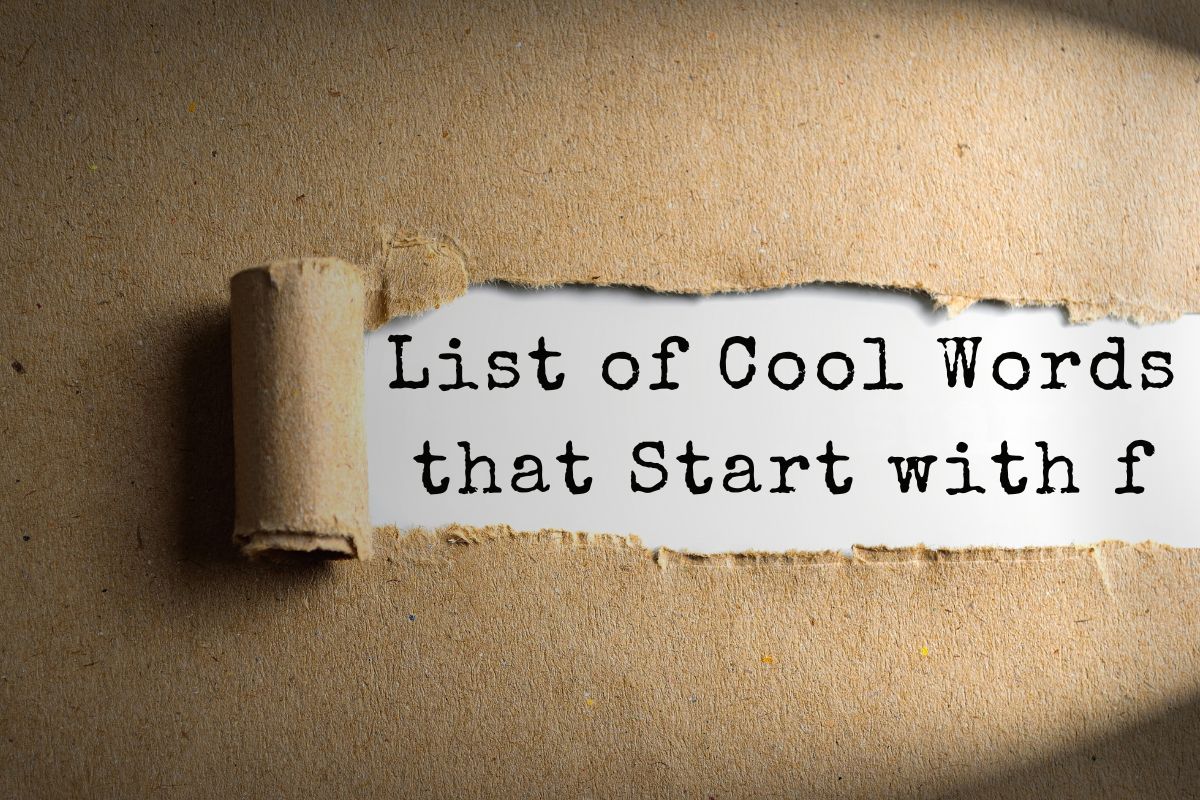
Here’s a list of cool words that start with ‘F’
- Fascinate
- Fervent
- Furtive
- Flamboyant
- Futuristic
- Funky
- Furtive
- Flourish
- Fathom
- Frivolous
- Festive
- Felicitous
- Fecund
- Finesse
- Fandango
- Facade
- Frisson
- Foresee
- Flabbergasted
- Frolic
These words carry a certain flair and can add a touch of sophistication or excitement to your language.

Hi, welcome to my blog! My name is Omid and I am thrilled to have you here! I am an English language teacher with 12 years of experience and hold multiple international certifications (TESOL, IELTS, TOEFL, PTE, CELTA). Additionally, I hold a PhD in Applied Linguistics with a specialization in Teaching English as a Second Language (TESL), which fuels my passion for teaching English and assisting others in mastering the language. To me, nothing is more rewarding than helping individuals enhance their English language abilities through various methods. So, let’s embark on this journey of learning English together.




